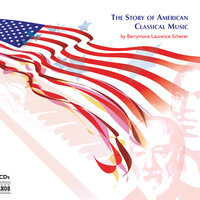
Knoxville, Summer of 1915, Op. 24: Knoxville: Summer of 1915, Op. 24: Orchestral Introduction - It has become That time of evening - Karina Gauvin, Samuel Barber
- Izlaiduma gads: 2005
- Valoda: Angļu
- Ilgums: 3:48
Zemāk ir dziesmas vārdi Knoxville, Summer of 1915, Op. 24: Knoxville: Summer of 1915, Op. 24: Orchestral Introduction - It has become That time of evening , izpildītājs - Karina Gauvin, Samuel Barber ar tulkojumu
Dziesmas vārdi " Knoxville, Summer of 1915, Op. 24: Knoxville: Summer of 1915, Op. 24: Orchestral Introduction - It has become That time of evening "
Oriģinālteksts ar tulkojumu
Knoxville, Summer of 1915, Op. 24: Knoxville: Summer of 1915, Op. 24: Orchestral Introduction - It has become That time of evening
Karina Gauvin, Samuel Barber
It has become that time of evening
when people sit on their porches,
rocking gently and talking gently
and watching the street
and the standing up into their sphere
of possession of the tress,
of birds' hung havens, hangars.
People go by;
things go by.
A horse, drawing a buggy,
breaking his hollow iron music on the asphalt:
a loud auto: a quiet auto:
people in pairs, not in a hurry,
scuffling, switching their weight of aestival body,
talking casually,
the taste hovering over them of vanilla,
strawberry, pasteboard, and starched milk,
the image upon them of lovers and horsement,
squared with clowns in hueless amber.
A streetcar raising into iron moan;
stopping;
belling and starting, stertorous;
rousing and raising again
its iron increasing moan
and swimming its gold windows and straw seats
on past and past and past,
the bleak spark crackling and cursing above it
like a small malignant spirit
set to dog its tracks;
the iron whine rises on rising speed;
still risen, faints;
halts;
the faint stinging bell;
rises again, still fainter;
fainting, lifting lifts,
faints foregone;
forgotten.
Now is the night one blue dew;
my father has drained,
he has coiled the hose.
Low on the length of lawns,
a frailing of fire who breathes.
Parents on porches:
rock and rock.
From damp strings morning glories hang their ancient faces.
The dry and exalted noise of the locusts from all the air
at once enchants my eardrums.
On the rough wet grass
of the backyard
my father and mother have spread quilts
We all lie there, my mother, my father, my uncle, my aunt,
and I too am lying there.
They are not talking much, and the talk is quiet,
of nothing in particular,
of nothing at all.
The stars are wide and alive,
they all seem like a smile
of great sweetness,
and they seem very near.
All my people are larger bodies than mine,
with voices gentle and meaningless
like the voices of sleeping birds.
One is an artist, he is living at home.
One is a musician, she is living at home.
One is my mother who is good to me.
One is my father who is good to me.
By some chance, here they are,
all on this earth;
and who shall ever tell the sorrow
of being on this earth, lying, on quilts,
on the grass,
in a summer evening,
among the sounds of the night.
May God bless my people,
my uncle, my aunt, my mother, my good father,
oh, remember them kindly in their time of trouble;
and in the hour of their taking away.
After a little
I am taken in
and put to bed.
Sleep, soft smiling,
draws me unto her;
and those receive me,
who quietly treat me,
as one familiar and well-beloved in that home:
but will not, oh, will not,
not now, not ever;
but will not ever tell me who I am
Citas šī mākslinieka dziesmas:
Vairāk nekā 2 miljoni dziesmu tekstu
Dziesmas dažādās valodās
Tulkojumu pakalpojumi
Augstas kvalitātes tulkojumi visās valodās
Ātrā meklēšana
Atrodiet nepieciešamos tekstus dažu sekunžu laikā